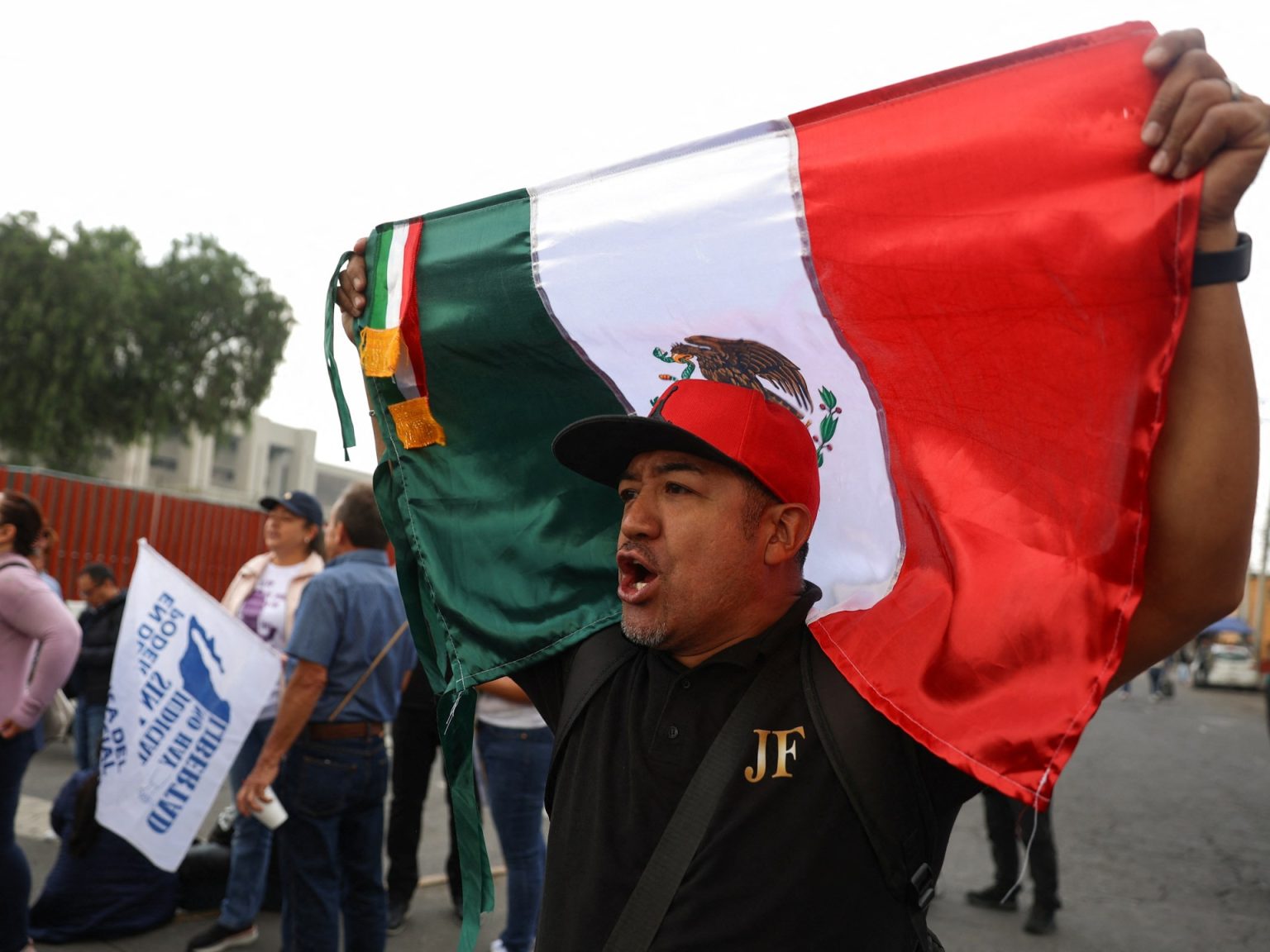Mexican demonstrators are protesting controversial judicial reforms proposed by the ruling party and President Andres Manuel Lopez Obrador. The reforms include the direct election of judges, which critics believe would increase political influence and diminish professionalism within the judiciary. Demonstrators argue that if the ruling party gains control of the judicial branch, it could jeopardize democracy in the country. Striking judiciary workers blocked access to the Supreme Court and Congress, where the reforms are expected to be pushed forward.
President Lopez Obrador has defended the reforms, claiming they will help combat corruption within the judiciary. However, the ongoing protests indicate widespread opposition to the proposed changes. Demonstrator Javier Reyes, a federal court worker, expressed concern that the reforms could have a negative impact on the independence of the judiciary and the overall democratic process in Mexico. The protests have disrupted government operations in Mexico City, with Supreme Court justices joining the strike in solidarity with the demonstrators.
The decision of the Supreme Court justices to participate in the strike reflects the growing dissent over the proposed judicial reforms. The vote, with eight justices in favor of stopping work and three against, demonstrates the division within the judiciary over the issue. This show of solidarity with the demonstrators highlights the widespread opposition to the reforms and the importance of an independent judiciary in upholding democracy in Mexico. The protests and strike have brought attention to the potential consequences of the proposed changes and the need to protect the integrity of the judicial branch.
The protests have intensified as demonstrators continue to voice their concerns and demand the withdrawal of the controversial judicial reforms. The strong opposition to the reforms reflects the deep apprehension among judiciary workers and citizens about the potential political interference in the judiciary. The demonstrations serve as a call to action for the government and ruling party to listen to the voices of the people and consider the implications of the proposed changes. The ongoing protests demonstrate the power of public mobilization in influencing government policies and the importance of upholding democratic principles in Mexico.
The standoff between the government, ruling party, and protesters underscores the larger debate over the future of the judiciary in Mexico and the balance of power within the country. The outcome of the protests and negotiations will have significant implications for the independence of the judiciary and the functioning of democracy in Mexico. The continued resistance to the reforms highlights the resilience of civil society and the determination of the people to defend democratic values. The protests serve as a reminder of the importance of a strong and independent judiciary in upholding the rule of law and protecting the rights of citizens.













